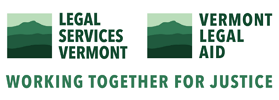Fair Housing Laws Apply to Every Kind of Home
Fair housing laws apply to most places people live or plan to live as their home. It is illegal to discriminate against anyone in:
- owned homes including condominiums, homeowner associations and single-family homes
- rented homes
- private homes
- homes with government funding
- mobile homes in a park or on owned land
- farmworker and other worker housing, and
- planning and zoning land use decisions that affect housing.
Fair housing laws also apply to common areas. These include parking lots, interior roads, pools, garbage disposal areas, community rooms and other areas open to residents. The Americans with Disabilities Act also applies to many of these spaces.
What about hotels, shelters and other dwellings?
Fair housing laws sometimes apply to other dwellings where people stay as their home for two or three weeks or more. This gets more complicated. Fair housing laws sometimes apply to hotels, motels, homeless shelters, campsites and housing provided as part of rehabilitation. But sometimes they don’t. It depends on several factors such as:
- How long do you plan to live there?
- How long do people usually live there?
- Do you have another home?
- Do you use the dwelling as your home?
- Do you cook, shower and leave and come back to the same space?
- Do you have a legal right to be there?
Whether or not fair housing laws apply to these types of homes is not a clear-cut rule. It depends on what a judge decides based on a lot of information. You should ask a lawyer if you’re not sure if your home is covered.
What to do
If you think you were discriminated against in housing, you have choices for what to do. See our Housing Discrimination: What To Do page.
